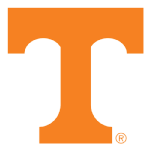Federal Judge Temporarily Suspends NCAA’s Name, Image, and Likeness Rules
A federal judge has temporarily halted the NCAA from enforcing its name, image, and likeness (NIL) rules, allowing athletes to negotiate compensation with third parties, including boosters. This ruling follows a lawsuit by the attorneys general of Tennessee and Virginia, challenging the NCAA's restrictions on athletes profiting from their NIL.
The Big PictureThe decision disrupts the NCAA's efforts to limit payments to athletes and maintain amateurism, highlighting the ongoing legal battles over athlete compensation and the concept of fairness.
By the Numbers- A preliminary injunction has been granted, suspending the NCAA's NIL rules until the lawsuit's conclusion
- The ruling suggests that the NCAA's actions could be seen as anticompetitive under the Sherman Act
The NCAA argues that injunctive relief should preserve the status quo, which it sees as its current rules, setting up a legal clash over the interpretation of state laws and anti-competitive practices in college sports.
State of Play- A federal judge issued the injunction against the NCAA, providing athletes with new opportunities for compensation
- The lawsuit by Tennessee and Virginia challenges the NCAA's NIL restrictions, indicating larger shifts in the landscape of college athletics
Further legal proceedings will determine the fate of the NCAA's NIL rules, potentially reshaping how athletes can benefit from their name, image, and likeness in college sports.
Bottom LineThe temporary halt on NCAA's NIL rules marks a significant development in the ongoing debate over athlete compensation and competitive balance in college sports, signaling potential changes ahead for how athletes can capitalize on their image and popularity.
Read more at The Athletic
The summary of the linked article was generated with the assistance of artificial intelligence technology from OpenAI


